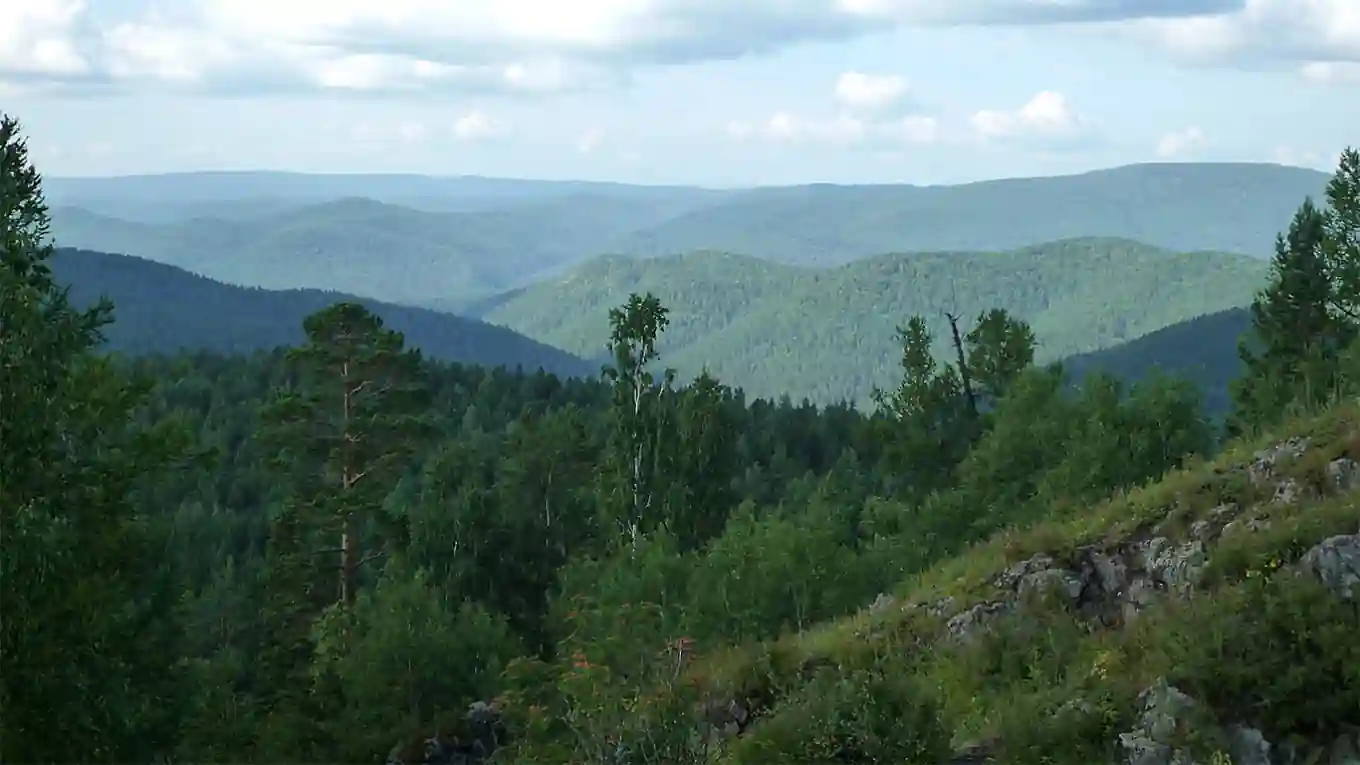As the global climate crisis deepens, Russia finds itself at a pivotal crossroads, where its vast forests stand as both a potential solution and a looming problem in the fight against climate change.
With the world’s fourth-highest carbon emissions, Russia has looked to its expansive woodlands to offset its environmental impact and even aspire to become a global leader in carbon absorption.
However, experts caution that the nation’s ineffective forestry practices and inadequate conservation efforts, compounded by the escalating effects of climate change, could soon transform these forests from carbon sinks to carbon sources.
In a candid assessment, a Russian forestry expert, speaking anonymously to The Moscow Times, warned that if the current trajectory of increasing wildfires persists, Russian forests could transition into net carbon emitters within the next one or two decades.
Such a shift would undermine efforts to mitigate climate change and exacerbate its effects worldwide. One of the critical concerns highlighted by experts is the rampant logging of Russia’s pristine old-growth forests, which serve as vital carbon reservoirs.
Approximately a quarter of all logging activities in Russia target these ecologically rich areas, further jeopardizing the nation’s carbon sequestration potential.
While forest preservation has gained recognition as a crucial climate solution, doubts linger over Russia’s ability to safeguard its woodlands for the long term.
Despite President Vladimir Putin’s assurances of stringent measures to combat illegal logging and wildfires, experts remain skeptical about the efficacy of current policies in preserving the integrity of Russia’s forests.
The discourse surrounding Russia’s forests has often depicted them as a panacea for the climate crisis. Sergei Ivanov, Putin’s special envoy for the environment, has boldly asserted that Russia’s forests could absorb the majority of global emissions, positioning the nation as an ecological benefactor to the planet.
However, this narrative has faced scrutiny from experts who argue that such claims overlook the intricate challenges facing Russia’s forestry sector.
At the recent St. Petersburg International Economic Forum (SPIEF) in 2024, Economic Development Minister Maxim Reshetnikov reiterated the significance of Russia’s forests in mitigating climate change.
He emphasized a perceived disparity between Western countries’ focus on emissions reduction and the potential of forests for carbon absorption.
This sentiment was echoed by a Russian forest management expert, who lamented the nation’s reliance on carbon-heavy natural resource exports and its reluctance to address emissions at the source.
Amidst these discussions, concerns persist about the future of Russia’s forests and their role in the global carbon cycle.
The anonymity sought by experts interviewed for this article underscores the climate of apprehension surrounding environmental discourse in Russia, where media outlets labeled as “foreign agents” face increased scrutiny and reprisal.
As the world grapples with the urgent imperative to mitigate climate change, the fate of Russia’s forests emerges as a critical juncture in the collective effort to preserve the planet’s ecological balance.
Whether Russia can reconcile its aspirations of environmental stewardship with the realities of its forestry practices remains a pressing question with profound implications for the future of our planet.
In the face of mounting challenges, the international community must engage in constructive dialogue and collaborative action to ensure the preservation of Russia’s forests and their vital role in combating climate change.
Only through concerted efforts can we hope to navigate the complex intersection of environmental conservation and sustainable development in the years to come.
This article was created using automation technology and was thoroughly edited and fact-checked by one of our editorial staff members
